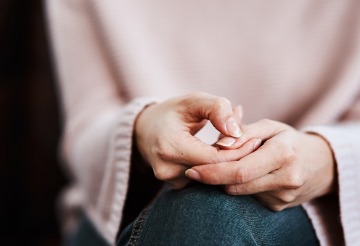


A father shares his experience as the parent of an online gaming addict to raise awareness of the addiction and encourage parents to “trust their instincts if they have suspicions”.
Peter* became concerned about his son, Ben’s*, gaming when he turned 13. It's common for parents to worry about a child's internet use, but at the time, Peter put it down to “oppositional or defiant, rather than addicted behaviour”, not understanding that addiction was possible.
“From about the age of 13, he was using online games without our knowledge. Although the computer, which was intended for school work, wasn't supposed to have games loaded on it, accessing them via the internet meant it was far harder for us to detect and know what he was doing, and from time to time, although the computer was supposed to stay downstairs, we would find it in his bed in the morning after he'd been using it at night.
“He would be constantly irritable and withdrawn, and became increasingly distracted from even basic matters of personal hygiene and care for his surroundings. Additionally, the absorbing fantasy world of gaming steadily drew an already quite solitary child away from normal sociability.
“As this continued, his schoolwork started to suffer progressively. The decline in his schoolwork and often total obliviousness to the consequences of his actions were a constant issue in the home, leading to huge, screaming arguments in which he would stubbornly deny there was any sort of problem at school.
“He became a serial liar, offering glib untruths in response to questions about almost anything mundane that might distract him from playing games or make him relate to the real world".
Peter has spoken about his experience to encourage parents to seek help if they're concerned about their child. He says: “Any suggestion that addiction to games isn't real is absurd. The existence of behavioural addictions is well-established, whether to games, gambling, pornography and doubtless many other things.
“When it results in starving, unkempt, broke people facing the possibility of suicide, denial is perverse. The acknowledgment of the issue by the World Health Organisation (WHO) is very welcome indeed.”
Peter understands the difficulties of recognising such an addiction. When his son, Ben, went to university, the family thought he was coping well with his studies and living independently.
“Initially, it seemed to go well. By the summer, he seemed to drink rather more than he had done hitherto, but he had never seemed remotely interested before, so, while raising an eyebrow, we put it out of our minds.
“At the start of the second year, we tried to call him – we couldn’t as the direct debit on his phone had been refused and his service had been cut off. He had blown over £1,000 in a matter of days on in-game purchases. He'd spent the latter part of the previous year playing games almost all the time and had skipped lectures, tutorials and practicals, spending all his savings in the process on games. He hadn't been eating properly and was wearing unwashed clothes.
“It transpired that he had, in fact, dropped out of the university having failed his exams and he acknowledged that he had both a gaming and alcohol problem, which had emerged as he had started to realise the depths of the hole he was entering.
“Caught in the dissonance of the lies he told us to maintain a façade of success and the truth of where he actually was, he took several days to come out with the real truth, and had attempted suicide the night before we met up until he was persuaded to come down from the parapet of a railway bridge.”
For parents concerned about their child’s gaming, Peter encourages them to “trust their instincts”. He also recommends “keeping gaming in the open, keeping tabs on where phones and computers go after hours, and watching for signs of tiredness, irritability and distraction.”
Signs and symptoms of online gaming addiction
Pamela Roberts, Addiction Programme Manager at Priory Hospital Woking, where Ben underwent gaming addiction treatment, has outlined signs that parents can look out for when determining whether their child has an online gaming addiction:
- Playing more often and for longer hours
- Needing to play more often to feel satisfied or gain a sense of achievement
- Wanting to cut down or stop gaming, but not being able to do so
- Spending a lot of time thinking about gaming
- Having strong urges to play video games
- Not managing to study or work or at home because of gaming
- Continuing to play videos games, even when this is causing problems in multiple areas of their life, including relationships
- Giving up important social or recreational activities in favour of gaming
- Continuing to play video games, even when this is exacerbating existing physical or psychological problems
- Development of withdrawal symptoms, relieved only by gaming
She says: "When someone realises they've the lost the ability to cut down or stop, whether it’s a substance or behaviour, they need help. When online gaming addiction isn’t recognised as ‘real’, this can cause the person to feel shame and judgement, stopping them from accessing support that could help them to recover.”
Speaking about Ben’s time at Priory Hospital Woking, Peter says: “The treatment gave him, first and foremost, the realisation of the scale of his problems and forced him, slowly, to confront them. It's also given him tools to deal with the ongoing difficulties of managing his life in the face of the addictions he had developed. It hasn't been easy – there have been some very difficult times – but it's given all of us more hope.”
*Names have been changed to protect identity.



